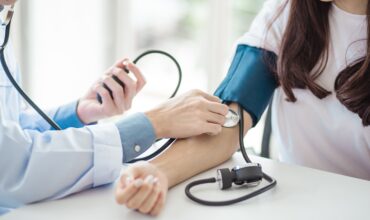Cervical Cancer

Did you know cervical cancer is the 14th most common cancer among women in the United States? But don’t worry; it’s also one of the most preventable cancers. The leading cause of cervical cancer is the human papillomavirus (HPV), which is a common virus that can be spread through sexual contact. Most people who are infected with HPV never develop cervical cancer, but for some women, the infection can persist and lead to cancer over time.
The good news is that there are two things you can do to protect yourself from cervical cancer: get vaccinated against HPV and get regular Pap tests. The HPV vaccine is very effective at preventing infection with the types of HPV that cause most cases of cervical cancer. Pap tests can help detect precancerous changes in the cervix, which can be treated before they turn into cancer.
So if you’re a woman, don’t forget to talk to your doctor about vaccinating against HPV and getting regular Pap tests. These simple steps can help you stay healthy and prevent cervical cancer.
And remember, you’re not alone in this! Millions of women around the world have been vaccinated against HPV and have gotten regular Pap tests. So don’t be afraid to ask your doctor about these important preventive measures.
Signs and Symptoms of Cervical Cancer
Cervical cancer is a type of cancer that starts in the cervix, the lower part of the uterus that connects to the vagina. The main cause of cervical cancer is the human papillomavirus (HPV), a common virus that can be spread through sexual contact.
Early-stage cervical cancer often does not cause any symptoms. However, as the cancer progresses, some women may experience the following symptoms:
• Vaginal bleeding after intercourse, between periods, or after menopause.
• Watery or bloody vaginal discharge may be heavy and have a foul odor.
• Pelvic pain or pain during intercourse.
• Unexplained, persistent pelvic and back pain.
• Difficulty or painful urination or bleeding from the rectum when having a bowel movement.
• Dull backache.
• Swelling of the legs.
• Weight loss.
• Fatigue.
If you experience any of these symptoms, you must see your doctor immediately. Early detection and treatment of cervical cancer are essential for a good prognosis.
There are a few things you can do to reduce your risk of developing cervical cancer:
• Get vaccinated against HPV. The HPV vaccine is very effective at preventing infection with the types of HPV that cause most cases of cervical cancer.
• Get regular Pap tests. Pap tests can help detect precancerous changes in the cervix, which can be treated before they turn into cancer.
• Avoid smoking. Smoking increases your risk of developing cervical cancer.
• Maintain a healthy weight. Being overweight or obese increases your risk of developing cervical cancer.
• Eat a healthy diet. Eating a healthy diet may help to reduce your risk of developing cervical cancer.
If you have any questions or concerns about cervical cancer, please talk to your doctor.
Conclusion
Cervical cancer is a serious disease, but it is largely preventable. The main cause of cervical cancer is HPV, which can be prevented by vaccination and early detection through Pap tests. If you experience any of the symptoms of cervical cancer, it is important to see your doctor right away. Early detection and treatment are essential for a good prognosis.
Here are some tips to help you reduce your risk of developing cervical cancer:
• Get vaccinated against HPV.
• Get regular Pap tests.
• Avoid smoking.
• Maintain a healthy weight.
• Eat a healthy diet.
If you have any questions or concerns about cervical cancer, please talk to your doctor.



